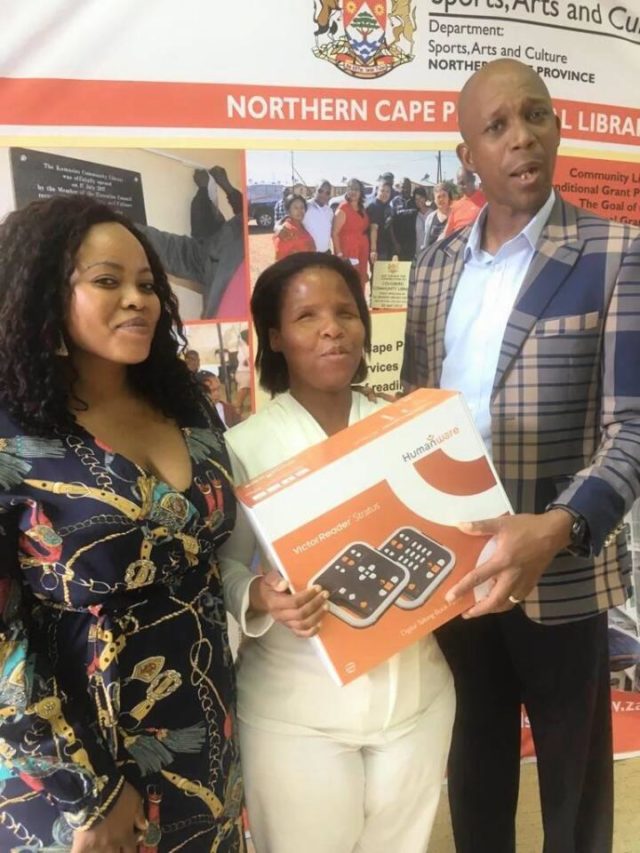“All the devices are operational and ready to use. They have a stand and some have controls to dictate information”
THE NORTHERN Cape Department of Sport, Arts and Culture (DSAC), in conjunction with the South African Library for the Blind (SALB), handed over daisy players to visually impaired users as part of the 2019 National Disability Rights Awareness Month.
The handover was part of SALB’s national initiative of extending its services to visually impaired people.
The joint venture also included the South African National Council for the Blind and Blind Community Network of South Africa.
The programme has been extended to nine section-four mini library sites since 2017 and this year also focused on the 16 Days of Activism Campaign.
The likelihood of women and children with disabilities suffering domestic abuse and rape due to misperceptions regarding their dependence, was highlighted during the handover at the Galeshewe Library.
According to the chief director for service delivery programmes at the DSAC, David Mdutyana, SALB provides reading material found in public libraries that are in formats accessible to the blind and disabled.
Only Galeshewe, Kimberley, Ritchie and Jan Kempdorp sites in the Frances Baard District benefited.
“All the devices are operational and ready to use. They have a stand and some have controls to dictate information,” Mdutyana said.
One of the beneficiaries, Sam Modise, saw the handover as a blessing which will allow him to re-open his business as a business performance consultant.
The 58-year-old lost his eyesight two years ago and had to start a new life as a blind person.
“The reality of being blind made me discover the challenges being faced by people with disabilities . . . I had all the knowledge but could not read,” Modise said.
“I had to go digital at an entry level to open up the world to me,” he added.
Betty Coetzee, who will also benefit from the devices, shared her frustrations of having not being able to go to read at a library, like ordinary people, due to being blind.
“We could not borrow books like other people or spend time reading at the library,” said Coetzee.
According to her, the installation of the devices can also curb the high unemployment rate among blind people.
She has been unemployed since matriculating at the Retlameleng Special school in 2008.
She ended up volunteering at the school.
“I will now be able to access information and do research,” she added.








